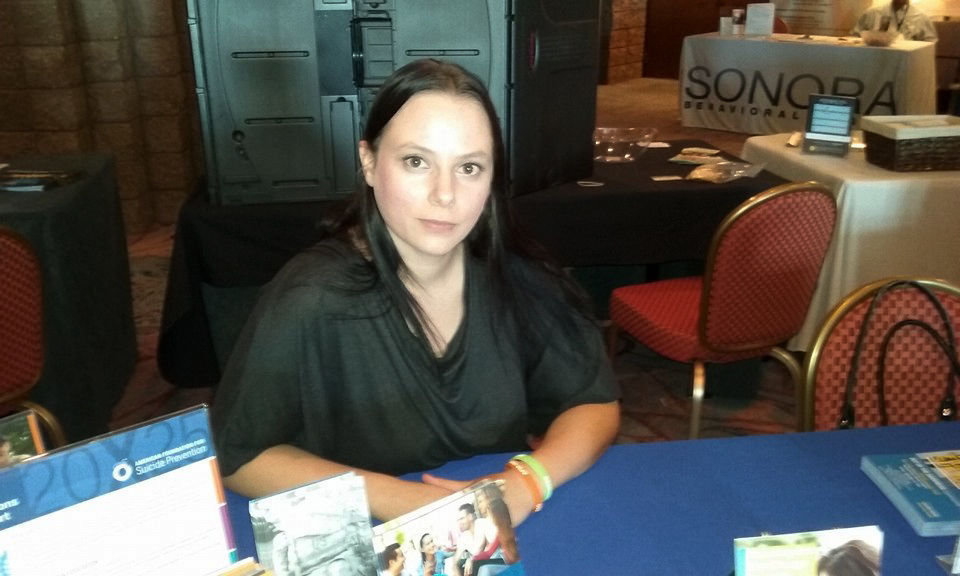Jessica Sottosanti and about 90 other volunteers will take steps to shed light on suicide prevention at the Out of the Darkness Tucson Walk on Sunday, Sept. 25, at Reid Park.
“There is a lack of understanding about suicide and how to speak about it and there is a stigma around mental illness and suicide. People are afraid to talk about it and the people who have mental illness are afraid of the reactions of others if they know they have mental illness or have attempted suicide,” said Sottosanti, volunteer coordinator for the fifth annual walk that will benefit the Arizona Chapter of the American Foundation for Suicide Prevention. “For people who don’t understand what it is to go through something like that, creating open dialogue, educating the community and overall being proactive in suicide prevention helps alleviate that stigma.”
Sottosanti, 31, has firsthand experience: After dealing with mental illness since she was a teenager, she attempted suicide twice within the past five years.
“I have only this year started telling people that I have mental illness. There is shame and guilt when you go through this. Not everyone gets through it and is able to come out on the other end and talk about it. People just need to feel safe and know they can talk,” said Sottosanti.
Many people are shocked by the incidence of suicide in Arizona, where one suicide occurs every seven hours on average, according to Dawn Hunter, Arizona area director for the foundation.
Suicide is the eighth leading cause of death overall statewide; it is the second leading cause of death for ages 15 to 34 and the third leading cause of death for ages 10 to 14 and 35 to 44.
“Almost four times as many people die by suicide in Arizona annually than by homicide and these are all things that people don’t know, which is why we are all about starting this conversation,” Hunter said.
Hunter launched the Arizona chapter of the foundation, which is dedicated to saving lives and bringing hope to those affected by suicide, in 2010 after losing her 19-year-old son, Justin Ricks, to suicide.
She said for her, as for many survivors, Justin’s suicide came out of the blue and she became educated after the fact in order to help others. She encourages the public to learn more at the foundation’s website at www.afsp.org and anyone in crisis to call the Suicide Prevention Lifeline at 1-800-273-TALK.
“About 90 percent of those who die by suicide are suffering from an undiagnosed underlying mental health condition — usually depression. Suicide is a complex issue and some are more at risk for suicide than others and when you combine health factors, environmental factors and historical, factors that increases the chance a person may take his own life,” Hunter said.
The foundation is making concerted efforts to reach out to populations that may be at greater risk including veterans and college students. Programs such as Talk Saves Lives target the LGBTQ and elderly communities while More Than Sad is directed to junior high and high school students.
Other innovative prevention programs provide instruction on early detection for educators and educate the public about risk factors and the early warning signs of suicide. The walk seeks to raise at least $45,000 to fund advocacy, research and continued outreach and awareness efforts.
“I wasn’t even aware that there was a walk here until April. Not everyone knows that we have resources in the community that can help and it is so important to know that. Plus, all of the money that we raise here in the walk stays here locally to fund research and education for suicide prevention,” said Sottosanti, who is also putting her own life experiences to work: In June, she graduated as a Certified Integrated Recovery Healthcare Support Specialist from the UA Family & Community Medicine Workforce Development Program.
“We assist people who have mental illness and/or substance use disorders or co-occurring disorders. Since we have personal experience of our own plus experiential knowledge through the Recovery Institute, we can help empower people to make their own choices toward their own recovery,” said Sottosanti.





